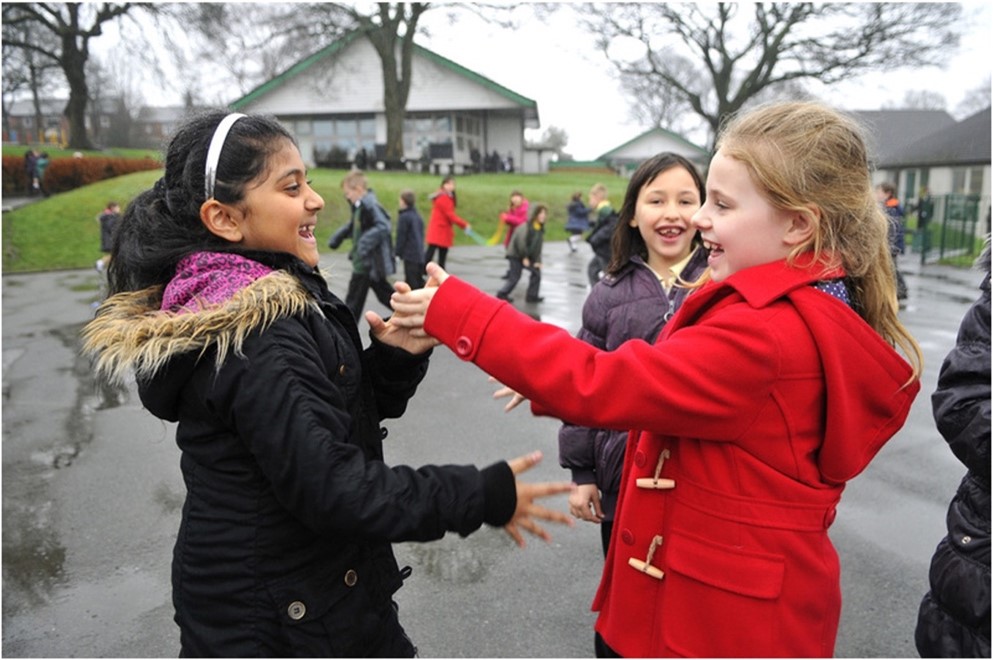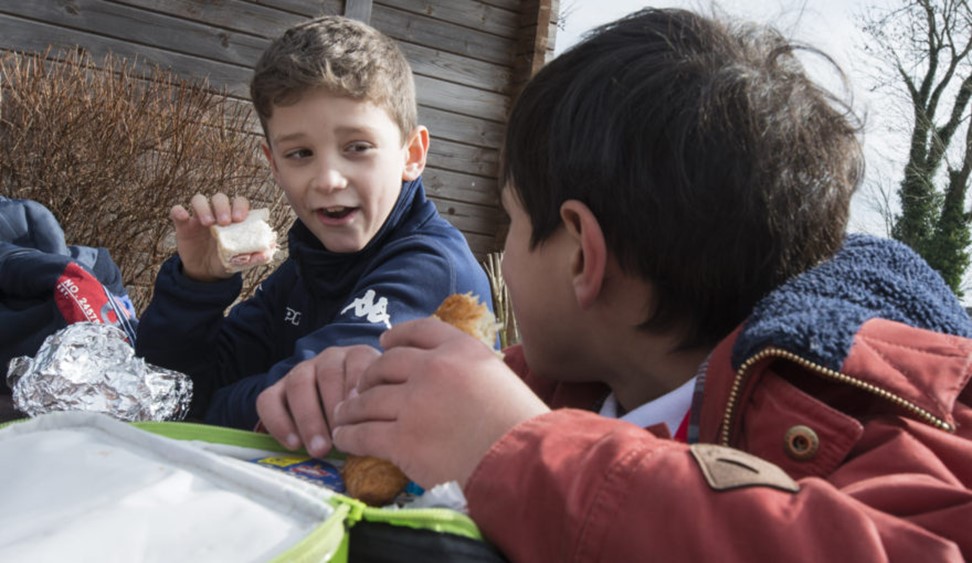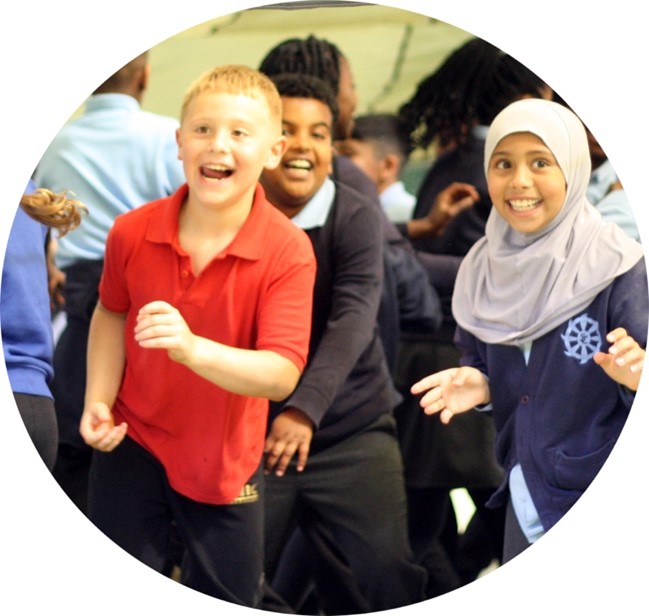
Dr Lindsey Cameron explains her role as Researcher in Residence at The Linking Network, and how YOU can get involved in Schools Linking Celebration week!
Dr Lindsey Cameron, Reader in Psychology and Director of Undergraduate Student Experience and Student Success for the Division of Human and Social Sciences at the University of Kent, has been involved with The Linking Network for four years. For National Schools Linking Celebration Week (13th – 17th June 2022) she blogs about the benefits of this initiative:

‘School Linking is an exciting education programme that brings together children from different schools, who may not normally have a chance to meet, to learn and have fun together. What I love about Schools Linking is it shows how psychological theories, like the contact hypothesis, can be used to create effective, cutting-edge education programmes that impact on children’s everyday lives. Through Schools Linking children gain new friendships, build a sense of togetherness with other children, develop trust, empathy, awareness, and respect for others.
“I genuinely think that linking can make the difference between a happy and an unhappy child” (Linking Teacher)
This week it’s Schools Linking Celebration week, when schools across the country will celebrate and share stories of linking. At the heart of their activities, they will be exploring the question: How do we all live well together?
So what can Schools Linking teach us about how we live well together?

-
Exploring and sharing who we are makes us stronger
“It really gave them a chance to talk about themselves and how they see themselves, which maybe they hadn’t been able to before. Plus, also, it gave them a whole new, almost skill set, for a couple of mine actually gave them the confidence to share information that maybe they hadn’t wanted to share before” Schools Linking teacher
Disclosing personal information about ourselves is one of the bedrocks of friendship. It requires space and time, and trust, which Schools Linking activities provide. This boosts children’s confidence in talking about themselves and builds stronger relationships.
-
Sharing and celebrating what we have in common helps children to connect
“They realise that they have got so much more in common and it is only small little things but it just makes a really big difference”
Connecting with people we have things in common with is important for creating a feeling of belonging and self-worth, and positive attitudes to diversity. Teachers tell us that through Schools Linking children enjoy making new friends, and discover things they have in common, particularly those children who struggle to make friends and socialise:
“There were children that struggled perhaps to mix but actually just found people there that they really got on well with and formed quite a strong bond with”
-
Appreciating difference and what makes us distinctive is important for living well together
Where there are differences it’s important also to listen, understand, respect and appreciate these. Children who are more open to difference and other cultures are more inclusive in their friendship behaviors. Schools Linking provides opportunities to explore and appreciate difference.
“They were able to talk about and communicate with others, what’s important to them and why. And then they were able to appreciate from one another, and what is important to other individuals, and what’s different, and what’s special about them.”
-
Encouraging friendships
“If you catch them at this point, then they might be more receptive to other things, and difference as they go through the school, as they go through life.”
Friendships are the cornerstone of creating stronger communities, and can combat negative attitudes to difference. Schools Linking teachers think this is important, and from a young age to help children resist negative attitudes. Schools Linking provides genuine opportunities for young people to form new friendships with children who are different to them in some way, and teachers think that is essential:
“Seeing each other and meeting each other. And being friends and going out on that playground and on that field and just kicking a ball around or playing with each other.’”
-
Having fun
“It was nice to be able to speak to another class and wave and play silly games and make each other laugh. And yet, just learn that little bit more.”
For children to live well together, it’s important to have fun together, on their own terms. This is what Schools Linking teachers have told us:
“Children not only learn from and develop skills necessary for meeting someone new, but also associate meeting new people, perhaps from a different background to themselves, with a positive experience”
-
Window into a wider world
“Just getting to know somebody of a different background , can make you more aware of everything in the world”
Schools Linking helps children understand the wider world, and think beyond their own bubble. To live well together we need empathy, understanding and a willingness to fight for injustice in the world. Teachers tell us that Schools Linking helps young people develop all of these key insights and abilities through connecting with other children, learning and having fun together.
How can you get involved?
The Linking Network want to hear what Psychology students think. How do YOU think we all live well together?
Share your ideas via Twitter with the hashtag #SchoolsLinking or onto this moderated padlet to be in with a chance of winning a prize for the most thought-provoking answers.
To be judged by Jon Yates former special adviser and Ameerah Turner Desai, TLN young trustee.’





